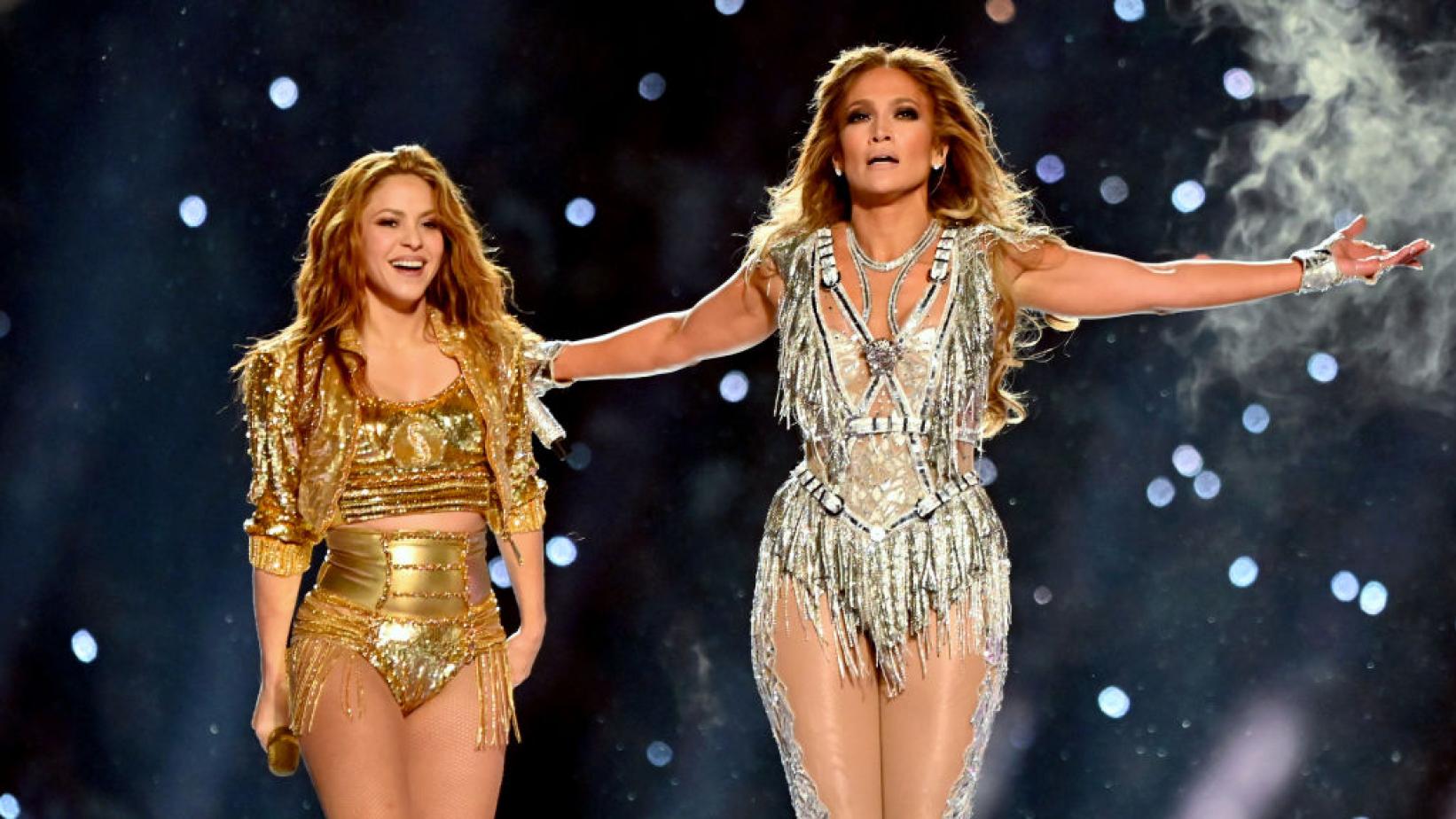Shakira and J-Lo’s Super Bowl Halftime Show was more than just a performance, it was a powerful political statement made by two incredible Latinx women.
Shakira and Jennifer Lopez’s Halftime Show at the Super Bowl LIV in Miami was more than just an incredible performance by two talented artists. Not only were their vocals and dance routines flawless, but they proudly represented Hispanic-American culture and modern femininity. The show was a defiant statement against sexism and racism in modern America.
The Super Bowl Halftime Show is a hugely important cultural event. The Super Bowl is consistently the US’s most-viewed TV broadcast and is watched all around the world. With an audience of over 100 million people, a Halftime Show is likely to be the most viewed performance of an artist’s career and generates much excitement amongst both football and music fans.
” The show was a defiant statement against sexism and racism in modern America “
Despite this, the NFL has struggled in recent years to secure popular artists for their Halftime shows. Protests over racial injustice and the blacklisting of Colin Kaepernick have led to artists like Rihanna and Cardi B refusing to play the Super Bowl in solidarity. This has resulted in a series of underwhelming performances by “safe” artists like Maroon 5 and Justin Timberlake: white men who lack the popular following of artists like Beyoncé, who gave an impressive Super Bowl performance back in 2016. In order to resuscitate the Halftime show, NFL appealed to Jay-Z, who only agreed to collaborate with the NFL after their Inspire Change initiative proposed $100 million to fund social-justice groups. Jay-Z, with his incomparable influence and connections within the music industry, was able to secure two of the biggest popstars of the twenty-first century: Shakira and Jennifer Lopez.
The choice of Shakira and J-Lo, of Colombian and Puerto Rican descent respectively, is a clear nod to Miami’s 70% Hispanic population. Both women had acknowledged the significance of this before the show, with Shakira hoping it would spread a “message of unity” across Hispanic communities and J-Lo acknowledging the “empowering” nature of having “two Latinas doing this in this country at this time”. Indeed, in the context of current US politics, a positive message about Latin identity is extremely important. President Trump has made racist remarks about Hispanic people and introduced harsh immigration politics that largely target Latin American immigrants.

In defiance of this, Shakira and J-Lo’s performance was a celebration of Latin music and culture. Shakira opened the show by shouting “Hola Miami!” and songs were performed in both Spanish and English. With both artists well known for their impressive dance skills, there was no shortage of salsa, with traditional Latin rhythms effortlessly entwined with some of their biggest pop hits like “Get Right” and “Hips Don’t Lie”. Two of the biggest reggaeton artists, J Balvin and Bad Bunny, joined the women and shouted out to the “Latino Gang”. They performed their biggest hits, such as “Mi Gente” and “Callaíta”, which have managed to cross over into mainstream US and European charts that are normally exclusively dominated by English-language tracks. Shakira also embraced her Middle Eastern heritage through her “Ojos Asi” belly dance and zaghrouta (an Arabic celebratory cry and now viral meme). The use of Colombian traditional dance styles and a Latin Swing band also acknowledged the African influence on Colombian Caribbean culture.
“two Latinas doing this in this country at this time”
As well as their celebration of diversity, the performance also explicitly referenced key political controversies that have affected Latin communities in the US recently. At one point, Jennifer Lopez was joined by her daughter, Emme Maribel Muñiz, and a choir of young girls. The children first appeared to be sitting in cages; potentially a reference to the appalling conditions of the children detained on the US-Mexican border. This was followed by a performance of “Born in the USA” combined with “Let’s Get Loud”, in which J-Lo wore a cape that combined both the American and Puerto Rican flag. This was a clear statement about the treatment of Puerto Rico, which is effectively a colony of the US, but is consistently denied funding and recognition by the US government. J-Lo effectively conveyed the message that she was just as American as anyone else and proud of her Puerto Rican heritage.

The artists also sent a message of female empowerment with their performance. Social media reacted in shock to the age of the performers (Shakira is 43 and J-Lo is 50). The surprise that this generated shows how unaccustomed we are to seeing women over 40 taking centre stage in the entertainment industry. Both proud mothers, accomplished artists and successful businesswomen, Shakira and J-Lo smashed the stereotypes associated with middle-aged women. Far from being “matronly” or “past their best”, they showed confidence, sensuality and athleticism. Although they have been criticised by certain angry old men for being too sexy (see Dee Snider’s twitter feed), the sexier elements weren’t degrading or objectifying to the women. Shakira’s belly dancing showed her remarkable skills as a dancer and J-Lo’s holds on the pole demonstrated an incredible level of strength and power.
” Far from being “matronly” or “past their best”, they showed confidence, sensuality and athleticism “
The Super Bowl Halftime show was undoubtedly an impressive musical display, that allowed Shakira and J-Lo to demonstrate the vocal skills and performance expertise that have led to their years of success in the industry. But more than that, it was a celebration of their heritage and sent a message of pride and solidarity for women and Latin communities. Their display of power and resistance in the context of a racist and intolerant political climate will ensure that this performance goes down in history as one of the most memorable Super Bowl Halftime Shows of all time.

